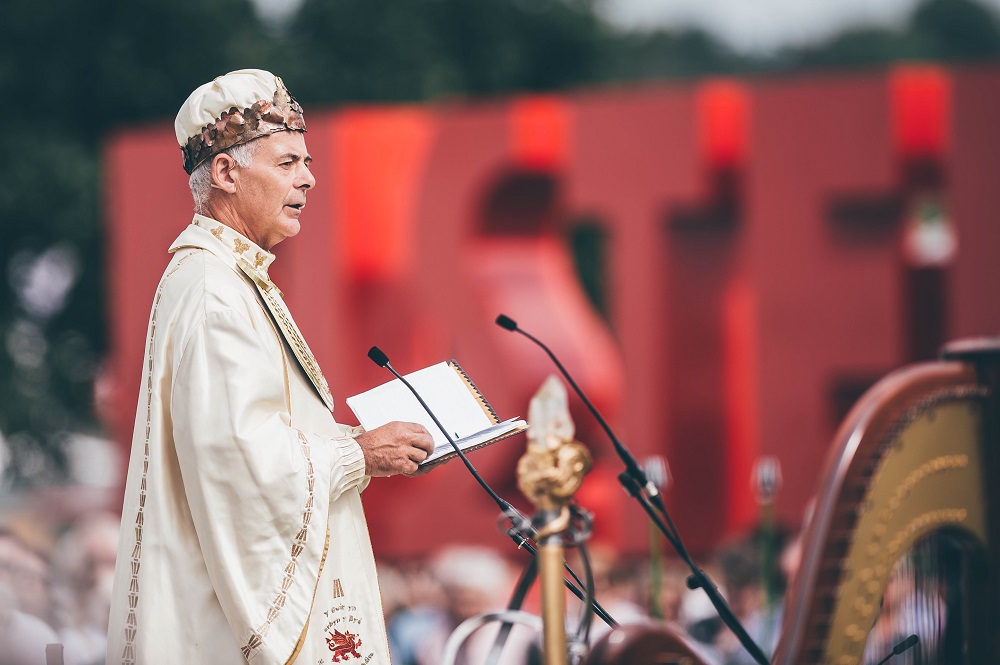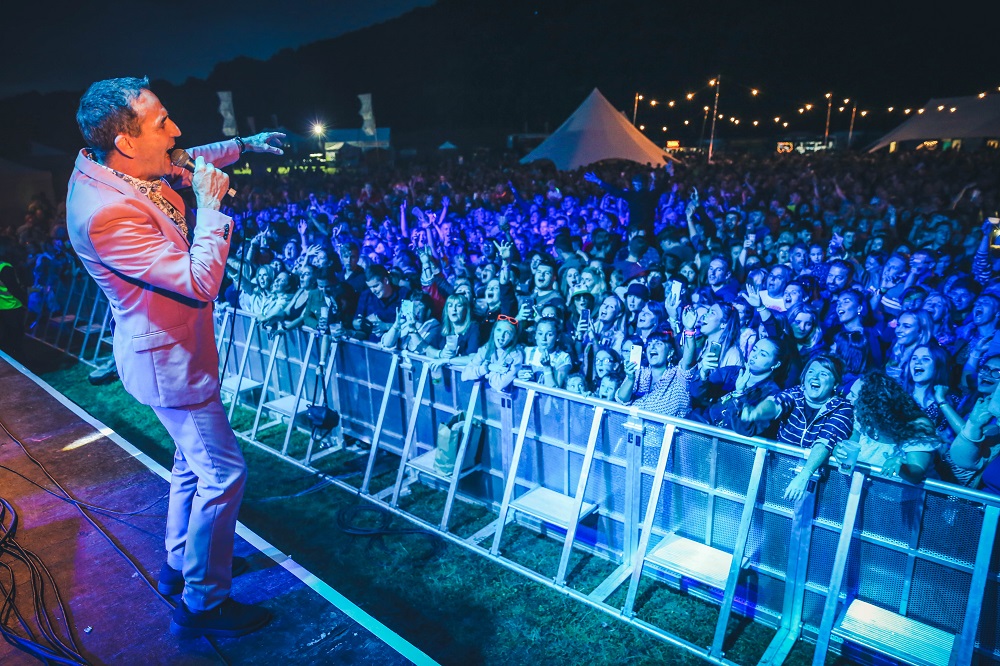The Eisteddfod is the opposite of elitist – it’s a festival made and remade by those who take part in it

Ifan Morgan Jones
Has the Eisteddfod become “stuck in the past” and the main competitions “too elitist”, as Huw Onllwyn argues in his recent article in Golwg magazine?
I would argue not – although I’m thankful to Huw for putting his head above a parapet and opening up a discussion on the subject. I think that there’s a tendency to be too defensive of the Eisteddfod, because we’re used to ignorant criticism along the lines of ‘the Welsh language is dead, and so why would you want to hold a Welsh language festival in the first place?’
But Huw Onllwyn isn’t some raving Cymrophobe – he’s someone who, he says, has visited the Eisteddfod every year for most of his life. His criticism is entirely constructive and an honest attempt to improve the festival.
I come at the Eisteddfod from a similar background, having visited most years of my life. But unlike Huw, who admits he has lost interest, I can’t wait until next year when the festival visits my home county of Ceredigion. My love for the Eisteddfod remains undiminished.
But to be honest, I think that around a decade ago I probably would have agreed with him. I did feel that there just wasn’t enough happening on the Eisteddfod field – unless you knew where to go, and when.
However, that has changed. There are now usually two stages on the field, with continuous live shows, giving the Eisteddfod much more of the vibe of a music festival – for those that want it that way.
His suggestion of moving Maes B’s gigs to the main field seems to me to have largely happened already. Pretty much all of the bands that would perform on Meas B grace the Eisteddfod’s stages at some point in the festival.
And compared to a decade or so ago, there’s loads going on everywhere. The continuous stream of Cyw and Stwnsh shows for children being a particular saving grace for parents.
Given how quickly – in Eisteddfod terms – the amount of live performance on the maes has increased over the past few years, pre-pandemic, the criticism strikes me as an odd one.
Evolution
Huw Onllwyn is also critical of the “thousands of competitions that are too similar to each other”.
But you might as well argue that the Olympics are boring because you’re not personally invested in the Dressage or BMX Racing. For a lot of people out there, these events are the Eisteddfod.
The 6,000 mostly amateur competitors are there for a reason – and if they weren’t there, the competitions wouldn’t be either. Competitions are culled and added each year to see what works and what doesn’t.
And that’s how the National Eisteddfod has evolved during its over 150-year history – entirely naturally. It’s an event made and remade every year by its contributors, competitors, writers, poets and visitors.
Beyond ensuring that all the infrastructure is in place to give people the space to put their own stamp on the Eisteddfod, there is only a certain amount of control that the organisers can exert.
The Eisteddfod is a stage, built for us every year, but we decide what to do on it.

Tradition
This means that if the crowing and the chairing of the Bard has become the “main competition” as Huw Onllwyn says, there has to be some reason for that.
The pavillion is full to the brim, and the ceremonies shown on prime time television for a reason – why? Because the “elite” has decided that it should be so? Or because people want to be there and people want to watch it?
Yes, I’m sure many, many more people watch these ceremonies for the pageantry than actually crack open a copy of the Compositions to read the winning entry (me included).
But why not? Cultural ceremonies can be important in and of themselves. For some people, that feeling of togetherness, of continuation, of a sense of belonging, is what the Crowning and Chairing are all about.
Tradition becomes tradition for a reason, because there’s something there people think is worth preserving.
What the Eisteddfod is will continue to be shaped primarily by the people who take part in it. And that seems to me to be the opposite of elitist.
Support our Nation today
For the price of a cup of coffee a month you can help us create an independent, not-for-profit, national news service for the people of Wales, by the people of Wales.







Cytuno yn llwyr ‘da ti Ifan
Diolch yn fawr for excellent response to Huw Onllwyn. I like the courteous appreciation of Huw opening the issue, and the methodical coverage of the relevant points. I like the way both writers speak from their own experience without pontificating. I answered Huw with far less expertise than Ifan but would like to repeat here how very much I appreciate the kindly atmosphere of the Eisteddfod. I never once felt second class because my Welsh is very basic. Also warmly helped around limited walking (there were lots and lots of chairs, like stepping stones, so important for elders, preggies, disabled,… Read more »
Yes, there’s absolutely no reason at all why Welsh-learners shouldn’t feel at home at the ‘steddfod, and not merely because they have an annual competition for learners. A group of adult learners that I know went to Llanwrst and had a great time. One even got a job as a steward. No elitism here, Huw.
Aim for the stars!
Cytuno cant y cant. The Eisteddfod grows and develops and is welcoming to all. If it’s just for an ‘elite’ then Cymru has a pretty big elite! The point about the Olympics is a good one. Of course some of the Eisteddfod competitions are rather specialised. Writing several hundred lines of strict metre poetry is a skill that takes years to develop. As does playing on the wing for Cymru. But 5000 people pack the tent for the adjudication, which goes out live on national TV. Can you imagine 100,000 people filling Wembley for, say, the Booker? It’s a wonderful… Read more »
Erthygl dda Ifan. Cytuno’n llwyr â phob gair. Mae rhywbeth i bawb yn y brifwyl a chyfle i bawb, o bob dosbarth a chefndir, ymuno yn y gweithgareddau. Dydy amgylchiadau ddim yn caniatáu i mi ei mynychu mwyach ond rwy’n falch o’r cyfle a gaf i werthfawrogi y rhaglenni cynhwysfawr a ddarperir ar y radio a’r teledu. Diolch amdanynt.